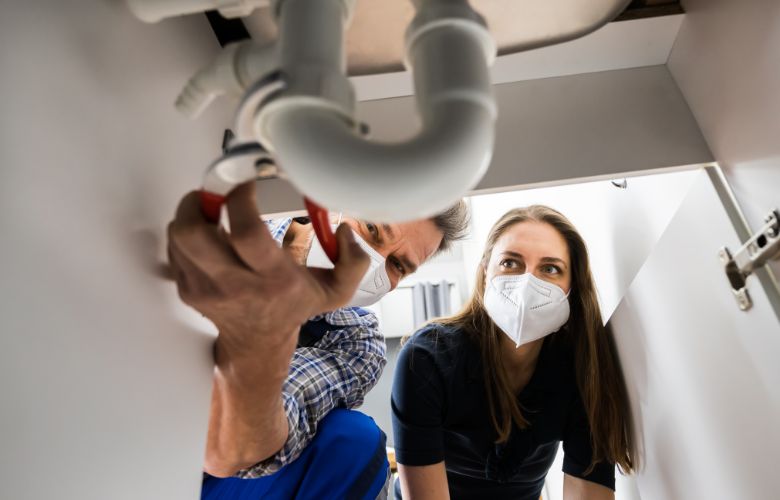Australia is a country with a temperate climate, so many things can go wrong in plumbing. Homeowners are likely to experience many plumbing issues because of these circumstances.
Many Australians believe that plumbing problems are just a thing of the past, thanks to the advances in technology. However, this belief can be wrong – and often, plumbing issues can stem from simple issues with your home’s plumbing system. If you’re not familiar with how your home’s plumbing works, it can be hard to think of ways to fix any problems – even if you know someone who does. That’s why the plumbing experts in Belrose, advise that it’s important to have a plumbing expert look at your home and see if there are any specific areas where problems exist.
So, what are the five most common plumbing problems in Australia?
Top Five Plumbing Issues In Australia
Clogged Toilets
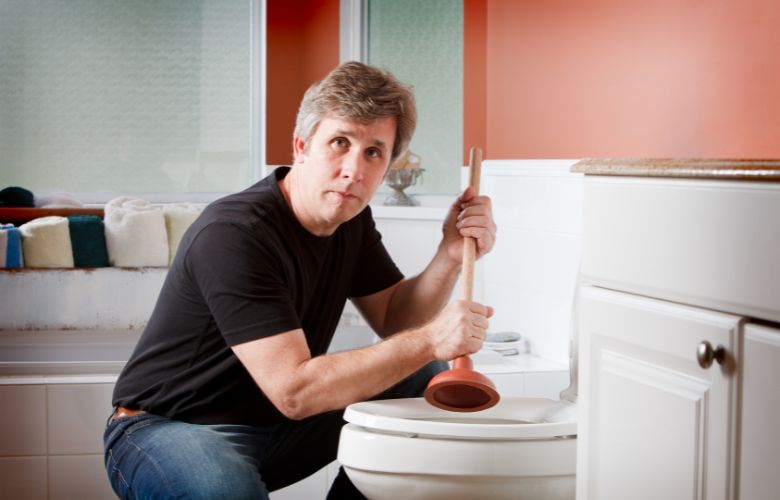
In Australia, clogged toilets are a frequent plumbing problem that may put homeowners and tenants through a lot of inconveniences. An obstruction in the drain pipe results in a blocked toilet when foreign objects, toilet paper, or solid waste become lodged in the toilet trap. The toilet may back up and overflow as a result of this obstruction, potentially causing water damage and hygienic problems.
Toilets can become clogged for a number of reasons, including using excessive toilet paper and flushing non-biodegradable things like diapers, feminine hygiene products, and wet wipes. Unfamiliar things like toys or jewellery flushed down the toilet can potentially clog pipes. Toilet clogs can also be brought on by plumbing that is too old or worn out, as well as by tree roots getting into the sewer pipes.
Lessening the amount of toilet paper used, throwing non-biodegradable items in the trash, and teaching kids not to flush toys or other objects down the toilet are all preventative measures that homeowners may take to avoid clogged toilets. In the event of a clog, homeowners can attempt to clear the obstruction with a plunger or plumbing snake. It is advised to hire a professional plumber to fix the problem if these approaches do not work, nevertheless, in order to avoid further harm or health dangers.
Slow Drain
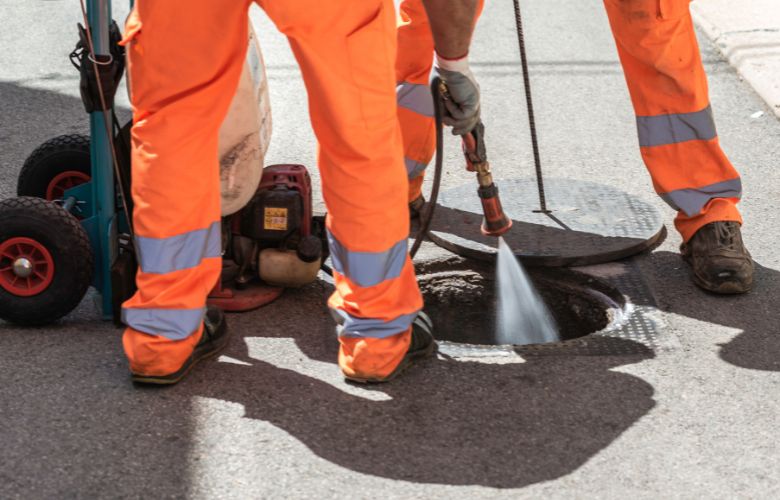
In Australia, slow draining is an annoying and frequent plumbing issue that Australian households deal with. Various locations, such as sinks, showers, bathtubs, and other drainage systems, are susceptible to this issue. The main cause of delayed draining is a buildup of debris, such as hair, soap, grease, or other materials. This accumulation generates an obstruction in the drainpipe, which slows down water drainage and hinders water flow.
Using a plunger, drain snake, or bent wire hanger can be a simple and efficient way to clear a blockage when your drains are taking a long time to empty. Calling a qualified plumber is necessary to fix the problem if these DIY solutions don’t work. Professional plumbers are equipped with the necessary tools and machinery, including hydro jetting and CCTV cameras, to locate the root of a blockage and effectively remove it. It is crucial to take care of the issue as soon as possible because ignoring the slow draining can lead to more serious plumbing problems and expensive repairs.
Dripping or Leaky Taps
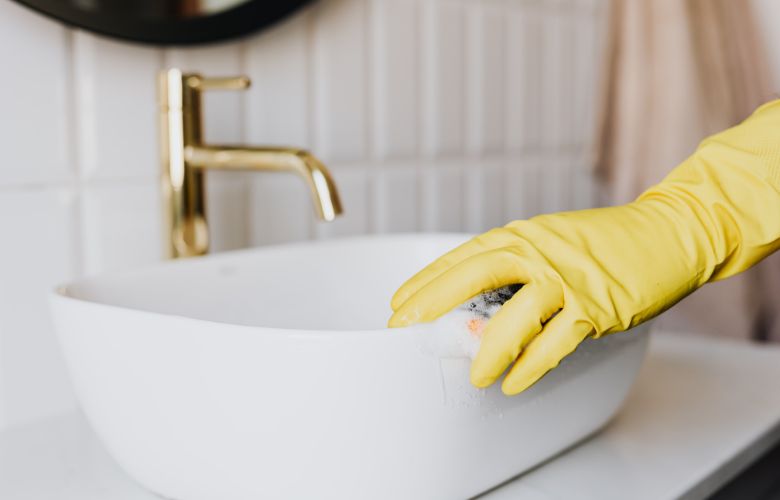
A worn or damaged washer is the most common cause of a leaky tap. The washer is a small rubber band that lies underneath the tap’s screw that is connected to its handle. The tap turns on when the screw lifts, allowing water to escape from the tap spout. The washer is sealed by the pressure created by the screw when you close the tap. If the washer is not in good condition, water may seep through and cause the fixture to leak. The washer must be replaced if the tap is leaking.
If the tap is leaking or has a running fixture like a toilet, it could be that several parts or mechanisms aren’t working properly. It is most likely that the problem is a component that must be replaced if you can locate the source of the leak. If you’re unable to locate the problem, you should call a plumber.
Poorly welded pipes may be the reason for poor water pressure. Luckily, there is stainless steel in Canberra that offers quality services. If the leak is coming from a pipe that is not properly welded, your plumber can repair it if he has the basic pipe welding tools. The washer must be replaced if the tap is leaking.
Water Heater Problems
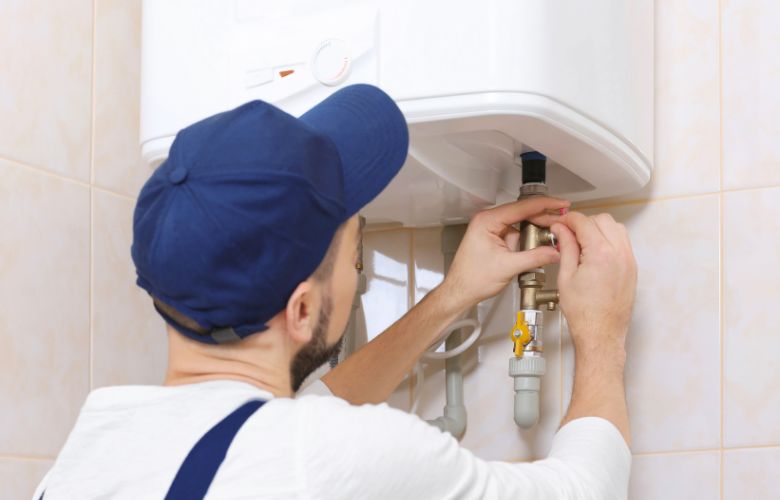
Water heater problems are a common plumbing issue in Australia. Cold showers, poor energy use, and even water damage might result from a malfunctioning water heater. Unusual noises, leaks, and fluctuating water temps are just a few of the warning indications that your water heater may be having problems.
Sediment buildup is one of the most typical issues with water heaters. The water heater might become less effective and have a shorter lifespan when sediment builds up at the bottom of the tank over time. Another frequent issue is a broken thermostat or heating element, which can result in variable water temperature or no hot water at all.
You must immediately contact a licensed plumber if you see any of these symptoms or suspect that your water heater isn’t operating properly. The water heater may need to be repaired or replaced, but they can diagnose the problem and suggest the best course of action. For your home to have a consistent supply of hot water and to prevent more serious problems, it’s critical to solve water heater concerns as soon as possible.
Low Water Pressure

Low water pressure is another common plumbing issue that many Australian homeowners face. It can be caused by a variety of factors, including clogged pipes, leaks, mineral buildup, or a malfunctioning pressure regulator. If you notice that your taps or shower head are producing weak water flow or dribbling, it’s likely due to low water pressure.
Checking your plumbing fixtures for clogs or mineral buildup is one of the first steps you can take to solve the low water pressure problem. Mineral buildup is frequent in locations with hard water, but it can be eliminated by soaking the afflicted areas in vinegar or a special descaling solution. The next step is to look for pipe leaks, which can result in a decrease in water pressure if obstructions or buildup are not the problem. It is better to call a qualified plumber to remedy any leaks if you see any.
Even after looking for clogs, buildup, and leaks, if you’re still having trouble with low water pressure, it can be caused by a broken pressure regulator. To get the water pressure back to normal, a licensed plumber can diagnose and replace the regulator. Low water pressure must be immediately fixed because it can cause problems like sluggish shower and bath times and can also be a sign of a more serious plumbing problem.
Ways To Prevent From Plumbing Issues
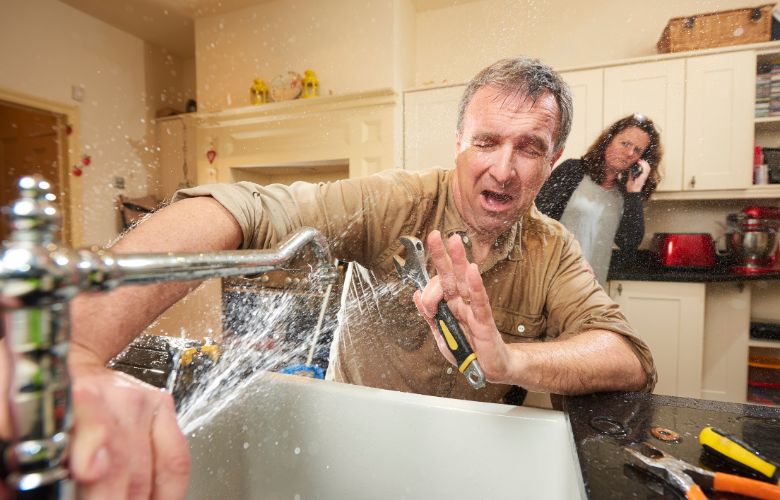
- Regular Maintenance: Scheduling regular plumbing maintenance can help prevent plumbing issues before they become major problems. A professional plumber can inspect your pipes, drains, and fixtures and identify any potential issues before they cause damage.
- Avoid Putting Non-Flushable Items In The Toilet: Toilets are designed to handle human waste and toilet paper. Putting non-flushable items such as wipes, feminine hygiene products, or paper towels can cause clogs and damage to your plumbing system.
- Proper Disposal Of Grease And Oil: Grease and oil should not be poured down the drain as they can solidify and cause blockages. Instead, let the grease or oil cool and dispose of it in the trash.
- Use Drain Covers: Your drains might become clogged with waste such as hair, soap scum, and other things if you use drain covers. Both their price and installation are simple.
- Insulate Pipes: In colder climates, pipes can freeze and burst. Insulating your pipes can help prevent this from happening.
- Regularly Clean Drains And Fixtures: Regularly cleaning your drains and fixtures can help prevent clogs and build-up of debris. You can use a mixture of vinegar and baking soda or a commercial drain cleaner.
- Be Mindful Of What You Flush: Besides non-flushable items, flushing large amounts of toilet paper at once can also cause clogs. Be mindful of what you flush and consider flushing multiple times if needed.
- Address Leaks Promptly: Even minor leaks can lead to larger plumbing issues if left unaddressed. Addressing leaks promptly can help prevent water damage and further damage to your plumbing system.
- Properly Use And Maintain Your Garbage Disposal: Garbage disposals are not meant to handle large amounts of food waste at once. Be sure to run water while using the disposal and avoid putting fibrous or starchy foods down the drain. Additionally, regularly cleaning and maintaining your disposal can help prevent clogs and odors.
- Monitor Water Pressure: High water pressure can cause damage to your plumbing system, while low water pressure can be a sign of a larger issue. Monitoring your water pressure and addressing any changes can help prevent plumbing issues.
- Be Cautious With Diy Repairs: While DIY repairs may seem like a cost-effective solution, they can often lead to larger plumbing issues if not done correctly. It’s best to leave complex plumbing repairs to a professional plumber.
- Educate Your Household Members: Educating your household members about proper plumbing practices can help prevent plumbing issues. Encourage them to follow proper flushing and disposal practices and to report any issues promptly.
Tips For Handling Your Own Plumbing Repairs
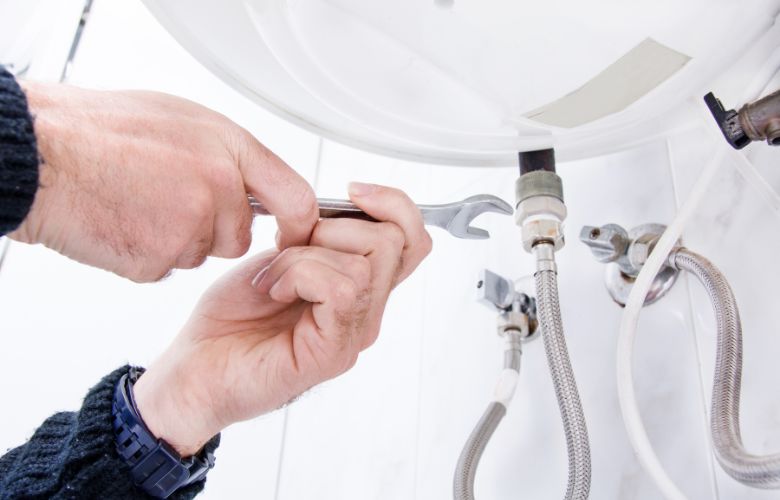
- Educate Yourself: One of the most important things you can do before attempting any plumbing repair is to educate yourself. By researching and understanding the problem you’re trying to solve, you’ll be better equipped to find the right tools and materials, and you’ll have a better sense of what steps to take. There are many resources available online and in plumbing books, and you can also seek advice from experienced plumbers.
- Gather The Right Tools: Having the right tools and equipment is essential for any plumbing repair. Basic tools like pliers, wrenches, and screwdrivers are a good starting point, but you may also need specialized tools like pipe cutters or a drain snake. Make sure you have everything you need before starting the repair, so you don’t have to stop halfway through to run to the hardware store.
- Turn Off The Water Supply: Before starting any plumbing repair, it’s essential to turn off the water supply to the area where you’ll be working. This will prevent water from flowing and potentially causing damage or flooding. The shut-off valve is usually located near the fixture or appliance you’re working on, and it’s important to know where it is and how to turn it off.
- Take Safety Precautions: Plumbing repairs can be dangerous, so it’s important to take safety precautions. Wear protective gear like gloves and eye protection, and be cautious when working with sharp or heavy tools. If you’re working with electrical components, make sure the power is turned off before starting any work.
- Start With Simple Repairs: If you’re new to plumbing repairs, it’s best to start with simpler tasks like fixing a leaky faucet or replacing a showerhead. These repairs are often straightforward and can give you the confidence to tackle more complex tasks later. As you gain experience and knowledge, you can gradually take on more challenging repairs.
- Follow Instructions Carefully: It’s essential to read the manufacturer’s instructions carefully before attempting any repair. This will help you avoid making mistakes that could cause further damage. Make sure you understand each step before proceeding and don’t hesitate to ask for help if you’re unsure about anything.
- Know When To Call A Professional: While many plumbing repairs can be done by a homeowner, there are times when it’s best to call in a professional plumber. If you’re unsure about a repair or encounter a problem that’s beyond your skill level, don’t hesitate to call for help. Attempting to fix a complex issue without the necessary knowledge and experience can be dangerous and costly in the long run. A professional plumber can diagnose the problem and provide the best solution, saving you time and money in the long run.
Conclusion
All of these problems can be fixed with a little effort and common sense. If you have any of these problems, please take the time to address them so that your home is as healthy and functioning as possible.
Plumbing issues also happen in commercial buildings and factories. For example, takeout packaging manufacturers during the paper bag manufacturing process. A simple leak in a factory could lead to serious consequences for workers. For example, a small leak in the pipe system could lead to a chemical spill or explosion that could kill workers and cause serious injury or even death, or can cause damage to the products.
Also, it is important to let a professional handle any plumbing work, because there is a lot of equipment involved and they would know what to do.

